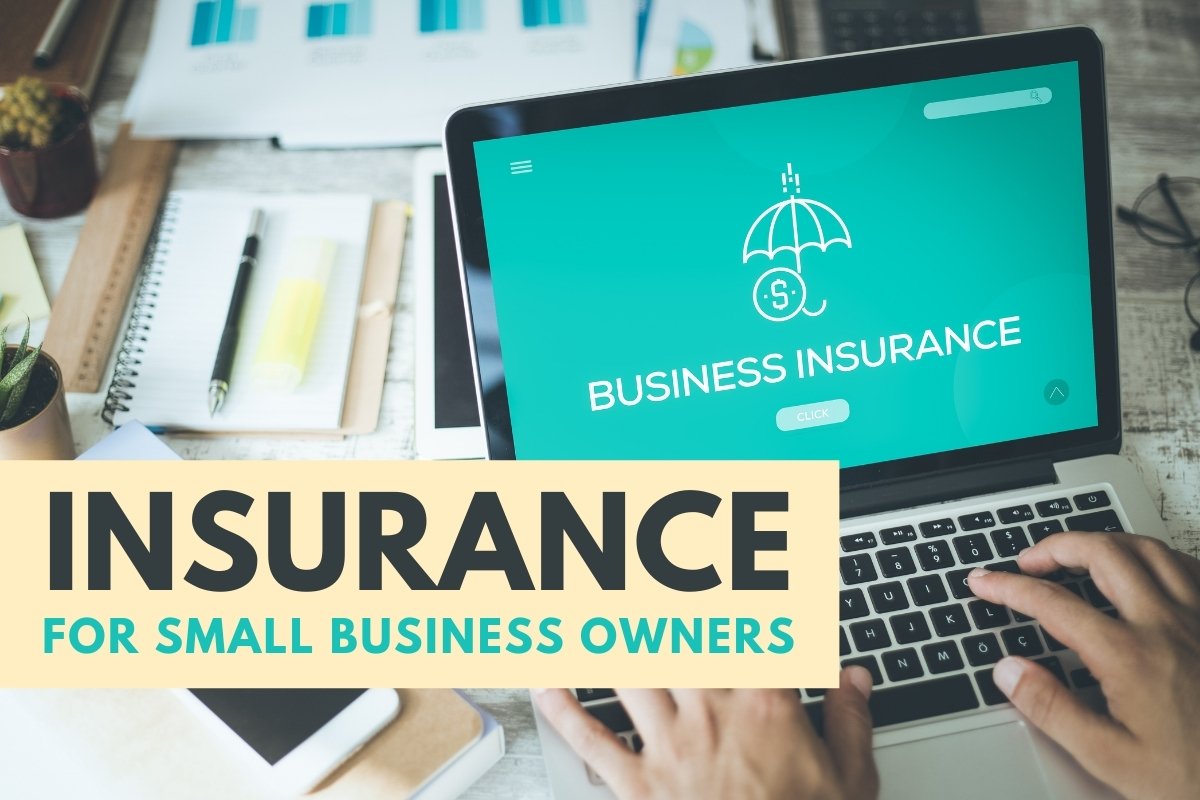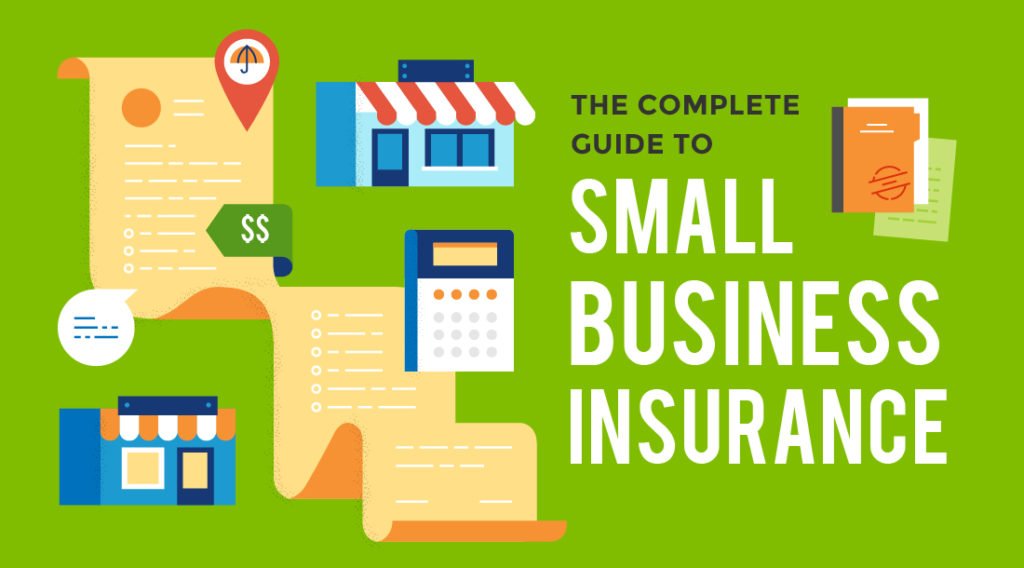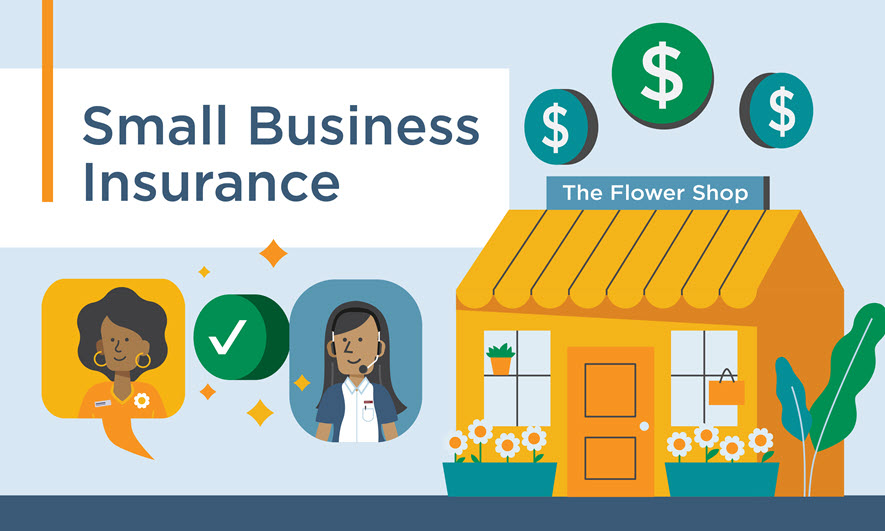Insurance for Small Businesses: A Complete Guide to Protect Your Venture
Small businesses are the backbone of the economy, but with opportunities come risks. Insurance plays a pivotal role in safeguarding your business from unforeseen events that could disrupt operations or lead to significant financial losses. In this blog, we will explore the types of insurance small businesses need, how to choose the right coverage, and why it’s crucial for long-term success.
Why Do Small Businesses Need Insurance?
Small businesses often operate on tight margins, making them particularly vulnerable to unexpected disruptions. Whether it’s a lawsuit, natural disaster, or employee injury, the right insurance policy ensures that your business can recover quickly and continue thriving.

Key benefits of small business insurance include:
- Financial Protection: Covers costs associated with accidents, legal claims, and damages.
- Credibility Boost: Many clients and partners prefer working with insured businesses.
- Peace of Mind: Allows you to focus on growth without worrying about potential liabilities.
Types of Insurance for Small Businesses
Choosing the right type of insurance depends on your industry, location, and specific risks. Below are some common insurance policies for small businesses:
1. General Liability Insurance
- What It Covers: Bodily injuries, property damage, and personal injury claims.
- Who Needs It: All businesses, especially those with physical premises or customer interactions.
- Example: A customer slips and falls in your store; this policy covers medical expenses and legal fees.
2. Professional Liability Insurance (Errors & Omissions Insurance)
- What It Covers: Claims of negligence, mistakes, or inadequate work.
- Who Needs It: Service providers like consultants, architects, and IT professionals.
- Example: A client sues you for a missed deadline or unsatisfactory service delivery.
3. Property Insurance
- What It Covers: Physical assets such as buildings, equipment, and inventory.
- Who Needs It: Businesses with physical locations or valuable assets.
- Example: A fire damages your office, and this policy helps cover repair costs.
4. Workers’ Compensation Insurance
- What It Covers: Medical expenses, lost wages, and rehabilitation for employees injured on the job.
- Who Needs It: Businesses with employees (required in most states).
- Example: An employee gets injured while operating machinery; this policy covers their treatment and missed pay.
5. Business Interruption Insurance
- What It Covers: Lost income and operating expenses during disruptions.
- Who Needs It: Businesses in areas prone to natural disasters or unexpected closures.
- Example: A flood forces your store to close temporarily; this policy compensates for lost revenue.
6. Cyber Liability Insurance
- What It Covers: Data breaches, cyberattacks, and recovery costs.
- Who Needs It: Businesses handling sensitive customer data or online operations.
- Example: A hacker steals customer credit card information, and this policy covers the fallout.
How to Choose the Right Insurance for Your Small Business
Selecting the right insurance can be daunting, but these steps can simplify the process:
- Assess Your Risks:
Identify the specific risks associated with your business. For instance, a retail store faces different risks than a digital marketing agency. - Understand Legal Requirements:
Check your state’s requirements for mandatory insurance policies, such as workers’ compensation or vehicle insurance. - Work with a Reputable Agent or Broker:
Insurance professionals can help you compare policies and find the best coverage for your needs. - Compare Policies and Prices:
Obtain quotes from multiple insurers to ensure you get competitive rates without compromising coverage. - Review Your Policy Regularly:
As your business grows, your insurance needs may change. Regularly update your coverage to match your current operations.

Common Mistakes to Avoid When Buying Small Business Insurance
- Underestimating Coverage Needs: Buying minimal coverage to save money can leave you vulnerable to significant losses.
- Failing to Read the Fine Print: Understand policy exclusions and limits to avoid surprises during claims.
- Delaying Purchase: Waiting until something goes wrong to buy insurance is a costly mistake.
FAQs
What is the minimum insurance coverage required for small businesses?
- This varies by state and industry, but general liability and workers’ compensation are often required.
How much does small business insurance cost?
- Costs depend on factors like industry, location, coverage type, and business size. General liability premiums can range from $400 to $1,500 annually.
Do home-based businesses need insurance?
- Yes, homeowner’s insurance typically doesn’t cover business-related claims. Consider a home-based business policy.
Can I bundle different insurance policies?
- Yes, many insurers offer business owner’s policies (BOPs) that combine multiple coverages at a lower cost.
What happens if I operate without insurance?
- You risk paying out-of-pocket for lawsuits, damages, and other liabilities, which can lead to financial ruin.
Conclusion
Investing in insurance for your small business is not just a legal requirement in many cases—it’s a smart strategy for protecting your assets and ensuring long-term success. By understanding your risks and choosing the right policies, you can safeguard your business from potential threats while focusing on growth and innovation.
